The Role of a Coach and Raising the Level of Player Development in the USA
Eddie Loewen grew up playing soccer in German’s Youth Bundesliga and played professional soccer in 3.Bundesliga before coming to the USA. The CEO of GFL Soccer and the Director of Coaching of the GPS Tampa Bay Affiliate of FC Bayern Munich, Dunedin Stirling Soccer Club, Loewen has a UEFA A license and USSF B.
Players need to understand performance and commitment is crucial in every training session and games.
Many of the directors of the highly respected Bundesliga‘s top Academies greet Eddie Loewen with the warmth of a familiar colleague. The fun banter, usually including a reference or joke to when they took their UEFA A license together or played at the same time in the Bundesliga usually gives way quickly to serious soccer talk but Loewen’s unmistakable breadth of contacts is unquestionable. What bonds Loewen with these top coaches in Germany is more than a shared past, it is a common view on the best approach to developing players.
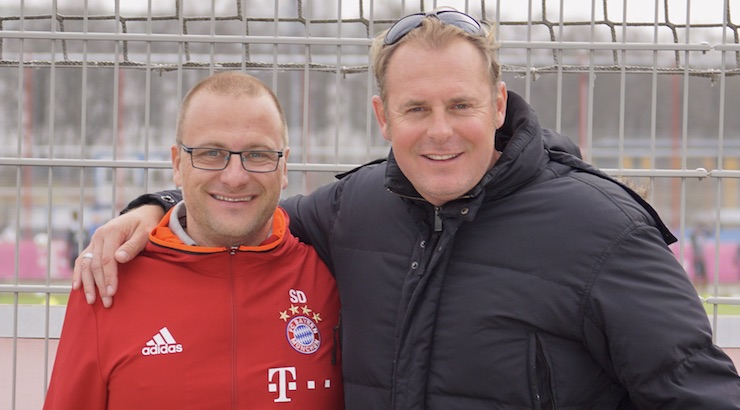
SoccerToday’s Diane Scavuzzo interviewed Eddie Loewen on the role of a youth soccer coach today. Here are Loewen’s views on what is important.
Related Article: Exploring Youth Soccer in Germany – GFL’s Eddie Loewen
Diane Scavuzzo: What is your coaching philosophy?
Eddie Loewen: My philosophy as a youth soccer coach is to be very focused and detailed oriented — not only when coaching the team — but also when working with the individual players on the team.
In German we say “Der Teufel steckt im Detail” — or in other words, the devil is in the details.
The key is to make each player better … and in turn, you will make the team better.
Each player has his strength and weaknesses, and as a coach, I need to identify these areas that each player needs to improve. That is a basic responsibility of any good youth soccer coach.
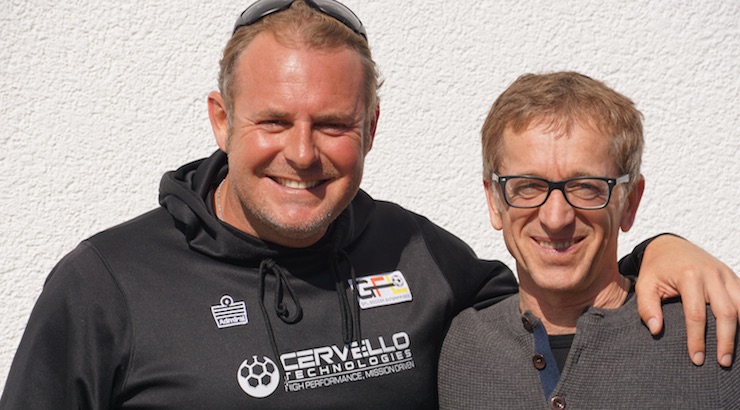
Diane Scavuzzo: What is your approach to training a team?
Eddie Loewen: All technical and tactical drills have to be related to the game. I am trying to always look at the game and analyze what the game dictates to us — so that players can get the connection between the drills and the game.
Related Article: Improving Youth Soccer Development: Eddie Loewen
Players now question everything — because they want to understand why they are doing certain things.
The goal should be to allow the players to understand the game and capitalize on their passion.
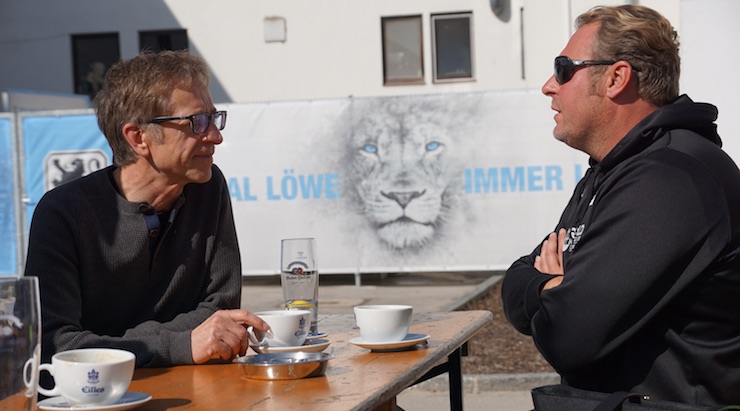
Diane Scavuzzo: How do you create a positive environment for player development?
Eddie Loewen: Take away the pressure of winning and take away the mindset that you can pre-design success and serve things in a “value box” as a coach …
For example, there is no simple prescription for developing players. “If the player trains x-amount of times a week, plays in a certain league and in specific tournaments, he or she will achieve this level of skill …” This is just not true.
Player development doesn’t work this way and you can’t predestine success.
In order for a coach to develop a youth player to the best of their ability, we need to work in an environment without all of these stigmas and preconceived assumptions.
Related Article: Eddie Loewen Talks German Football League
Not one single professional soccer coach is interested in the fact a player had 1000 private lessons or won prestigious tournaments. No college coach cares how many times your team won State Cup or Dallas Cup …
Professional coaches only care about a player’s current performance.
How good is the player? Can you deal with the pressure and the demands on that level?
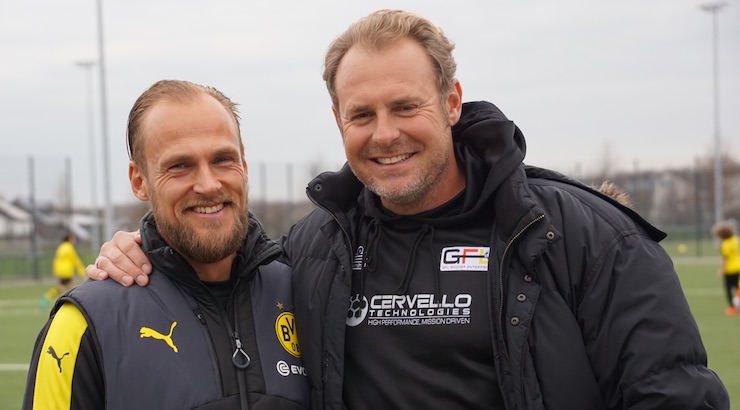
As a Director of Coaching of a small club, I try to focus between the ages of 8 years old to 12 years, soley on the technical development — making the players proficient with the ball and very versatile in regards to the field positions.
If one of our teams win a tournament and are successful in their league, it is all secondary. To most parents it isn’t — but to me, and my coaching staff it is.
Between the ages of 13 years old and 15 years, we try to identify the individual talent of each player and try to guide them towards what position is best suited for them on the field.
Related Article: Exploring Youth Soccer in Germany – 2017 GFL Youth Soccer Trip
In addition, we try to provide a high level environment of training for the players where they can get detailed instruction and also have the ability to “free play” which is self-regulated.
This is normally the age where players decide if they are serious about the game or if they just want to play it casually. Either way is fine, but the player has to make that choice — not the parent and not the coach. We allow the player to be the driving force behind his/her success and improvement.
From the ages of 16 years old to 19 years, we help the player understand what it means to train and play to perform.
The reality is when players are in a College or Pro environment, the coaches will only look at the performance of the players — therefore players in that phase need to understand that their performance and commitment in each session and game is crucial.
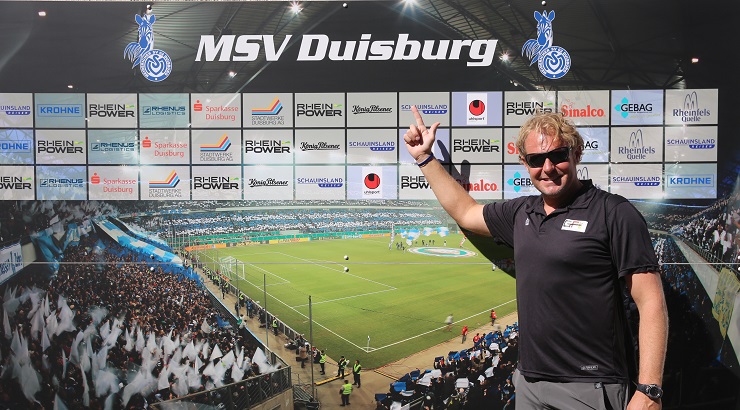
The road to becoming a professional, or the best player one can be, is an individual journey.
Even though the performance of the individual players — and the team as its whole is stressed more during this phase …
we don’t equate wins and trophies with successful player development.
Even between ages of 16 and 19, the player still will experience highs and lows and he will take one step back, and then perhaps three steps forward … player development is a process.
At the end, we as coaches can only set the stage and the players have to be the actors.
Soccer is art and it is supposed to be fun —and, even though you rehearsed the act multiple times, you don’t always know how the show will go.
Sometimes the actors “hit it out of the park” and sometimes they get “stage fright.” That’s art. We are not a factory that can set the machinery to a certain level and boom, here we go “the player is in the box.”
It doesn’t work that way in my opinion.
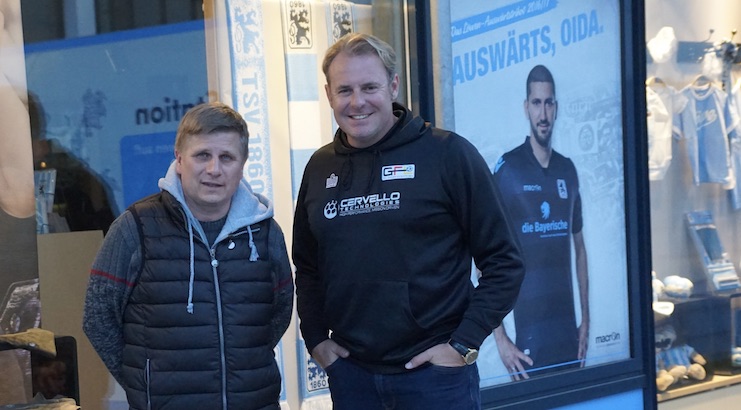
Diane Scavuzzo: Why is it hard for Americans to understand the player development is a journey not a one-season experience?
Eddie Loewen: I think that Americans are so used to instant gratification. Everything has to happen right away and if it doesn’t happen, than parents feel that moving to another club is the solution — especially when people spend a lot of money for their child’s soccer development — the expectations are higher and results are expected immediately.
Player development is a long process and at the end the player will decide what stage of development he or she wants to enter.
The parent can try to push and be the driving force behind the child, but that method will most often lead to burn out or the player quitting the sport.
Diane Scavuzzo: What does it take to be a good coach?
Eddie Loewen: You need to be a good communicator, organized, you need to have a good knowledge of the technical and tactical aspects of the game and know how to convey your knowledge. Some coaches have a lot of professional player experience and knowledge of the game, but do not know how to bring the message across in a simple way so that players can relate and absorb the information.
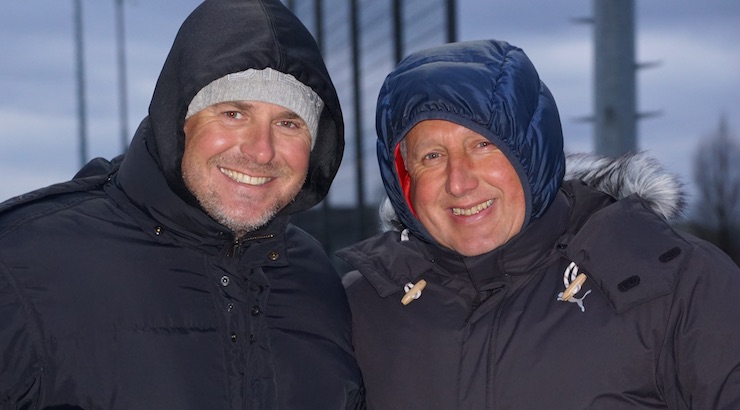
A coach also needs to be fair and empathetic.
The best coaches know what is going on in the players’ minds by reading their body language and understand every little detail that happens on the field and in the locker room.
Knowing how your players “tick” is key — this way you can get the best out of them. To do this, you have to spend time with the players … talk to them, meet with them, have lunch or coffee with them.
Once the player knows he or she can trust you, and that you care about them, not just as a perfomer but also as a person, the player will go thru a wall for you.
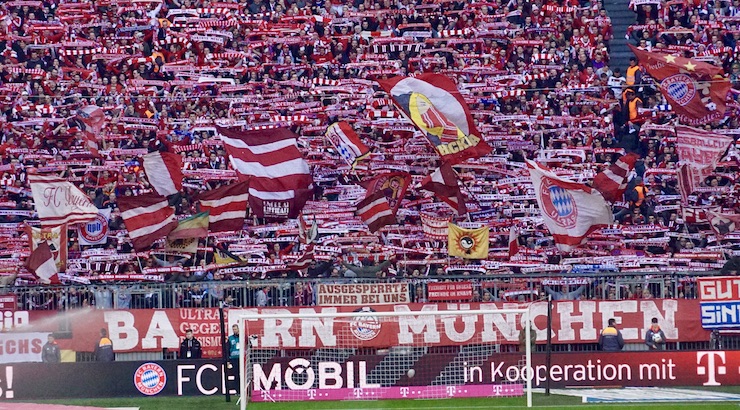
Diane Scavuzzo: What is your coaching license?
UEFA A License acquired with the DFB and USSF B License.
Diane Scavuzzo: How hard is it to achieve a UEFA A license?
It is a long and hard process. It took me over 2 years with a lot of theory sessions and practical internships at Pro Clubs.
Known as the DFB (Deutscher Fußball-Bund) — the German Football Association’s coaching school is very detail oriented and makes sure that coaches demonstrate proficiency in tactical, theoretical and psychological topics.
Coaching skills including Leadership, Communication dealing with the Media, knowledge of Anatomy and Physiology, Organizational Skills and Team Management are stressed heavily in the coaching course.
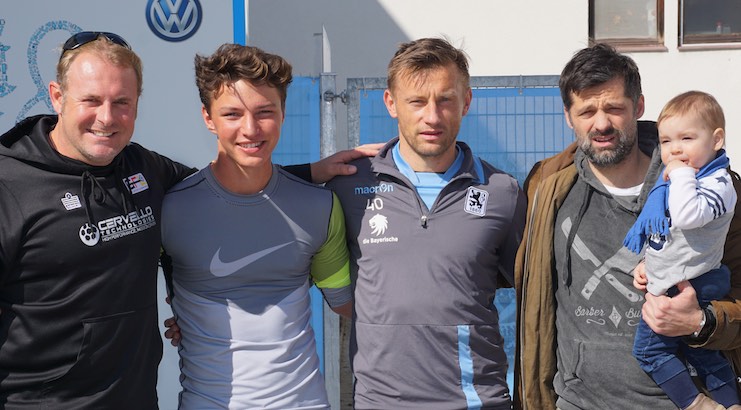
Diane Scavuzzo: What is GFL?
Eddie Loewen: GFL Soccer focuses on exposing talented US Soccer players at different ages to the highest level that Germany has to offer, so that the US players can measure themselves with the best in Germany at their particular age.
As the CEO of GFL Soccer, I arrange a series of trips for talented youth soccer players to visit and train in Germany — usually in games against top Bundesliga Academies.
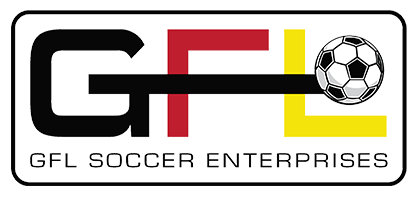 GFL trains elite youh soccer players and organizes teams to play in Germany against German teams, such as FC Bayern Munich, TSV Munich 1860, Borussia Dortmund (BVB), Fortuna Dusseldorf, FC Cologne and Fortuna Koln among many others.
GFL trains elite youh soccer players and organizes teams to play in Germany against German teams, such as FC Bayern Munich, TSV Munich 1860, Borussia Dortmund (BVB), Fortuna Dusseldorf, FC Cologne and Fortuna Koln among many others.
Far from the ‘fake’ trips which bring youth soccer teams to the fields at top academies only to play local, community teams, GFL’s trips bring American youths to compete head on against their top German peers. It is an amazing experience.
Related Article: GFL on EXPLORING YOUTH SOCCER IN GERMANY – GFL’S
Next Week: Part II – Eddie Loewen on The Inside Scoop on Youth Soccer Training in Germany






